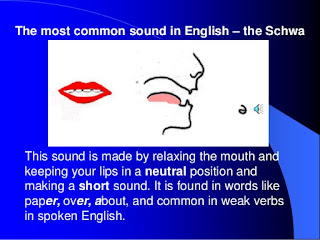febrero 2, 2023

Durante mis mas de 15 años como profesor de inglés, oír a alumnos decir lo de “is the pen” (cuando en realidad quieren decir “it depends”) es de las cosas que me encuentro con más frecuencia. Si eres un profesor de inglés, estoy seguro de que también te ha pasado, y si estás aprendiendo inglés (da igual el nivel, realmente), seguro que de vez en cuando se te escapa. Cada vez que necesitamos expresar una opinión o argumentar una idea, es altamente probable que tengamos que decir que algo “depende” de las circunstancias personales, temporales, etc. De manera que es muy importante que esta frase tan recurrente la pronunciemos bien, porque lo de “is the pen” suena muy gracioso y a la vez muy mal.
Éstos son algunos de los errores más comunes que puedes estar cometiendo sin darte cuenta:
Making mistakes is OK! Making mistakes is cool! Making mistakes is part of ANY learning process. However, if a mistake refuses to disappear of a person’s speech, constantly showing up, like that unwelcome guest that for some reason we always end up sitting next to at a wedding reception, being forced to sit through his endless repertoire of stupid, unfunny jokes he believes crack everybody up and wouldn’t shut the f*** up if his life depended on it, well then it ceases to be a mistake and becomes an ERROR. And errors when frequently made can be as annoying for a teacher as the situation previously described, especially if that teacher has explained them like 2,548 times.
I recently mentioned that the really recurrent phrase “it depends” is sometimes pronounced as “is the pen“, which sounds rather humorous. As I said, “t” and “d” sound practically the same (the first is voiceless and the second, voiced), so in connected speech, it may sound like a single consonant sound (“idipends“), and anyway, there’s no S in there.
Other common mistakes are the following:
“To can”, “can to”, “must to” and other modal verb rules violations
Can, should, must, may, will, etc. are all modal verbs, which means they are verbs that do not really mean much on their own but help other verbs (lexical verbs) acquire a shade of meaning (meanings of obligation, probability, ability, possibility, deduction, etc,). Anyway, they ALWAYS follow the structure: modal verb (without TO) + bare infinitive (i.e.: verb without TO). And that is something which is explained to ESL students from the VERY BEGINNING. Therefore anyone saying “can to” (synonym of “piedra” in Spanish), “should to” (how scary!/ “ay qué susto!” in Sevillano) or “must to” (dangerously close to sounding like the beginning of a word that describes the very filthy but widespread act of onanism) at this level (or superior levels) deserves to be merciless laughed at. Even worse is saying “To can” (not very frequent at this level, to be fair). This likable animal always comes to mind.

“For to go” or the art of making an ESL teacher involuntarily disgorge in disgust
Let’s set it straight from the beginning, shall we? Purpose/ finality/ the reason for something is usually conveyed in English by To-infinitive (as “We went to the party dressed as chimpanzees to have a laugh“). For + V-ing is also valid (as in “this gadget is good for doing exercise at home“), but nowhere as frequent. What by no means you can (and should not) say is “for to go“. It sounds hideously bad! Do you mean “Portugal“? What’s up with our nice, humble neighbors?

“Take a coffee” (and run away with it, but don’t dare to return if you dare to say that again)

Ok, guys, it’s plain and simple: you HAVE a beer/ tapa/ coffee/ drinks/glass (not “cup” of course) of wine, not “TAKE“! Sure in Spanish we say “tomar” but, alas, Spanish and English are two DIFFERENT languages and the sense of “consume, ingest or drink and finally savor” is conveyed by HAVE, NOT TAKE!
“I have many friend” (aka “the curious case of numerical dyslexia)
I know, we live in Murcia and because of our dialect, we usually (especially if we have a thick accent) drop the “s” in plurals and such. Well, speaking badly our mother tongue is a really poor excuse to speak English wrong. It’s a question of basically making an effort. Then call me intolerant, but anyone sounding too “Murciano” when speaking English strikes me as someone who basically does not give a damn and who indulges in their own laziness. Come on! It’s about oral gymnastics! One, two! one, two!
“I am very nervius” (then take some relaxing pill and pronounce it correctly, for God’s sake)
Countless adjectives in English end in –ous, and the vowel we have to utter is the mid-central-unrounded short and extremely frequent vowel “schwa”. It does not exist in Spanish, so it’s not “e”, “a” or “o”, and definitely, not “u”. Saying “feimus” or “nervius” or “deinllerus” sounds TOO basic to be acceptable at this level.

Again, as I said at the beginning of the post, it’s ok to make mistakes, but when there is an intention of redeeming yourselves with amendments, or basically, overcoming those mistakes.
So if you see yourselves making THESE ERRORS, you know it’s time to bloody get your act together. AT ONCE
Breakthru ©Copyright 2022. Todos los derechos reservados.